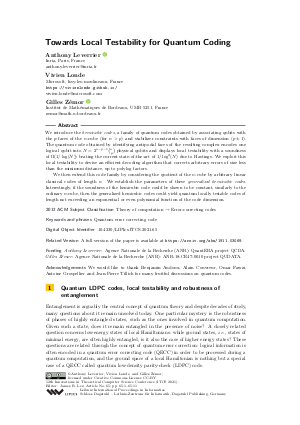LIPIcs.ITCS.2021.65.pdf
- Filesize: 421 kB
- 11 pages

 Creative Commons Attribution 3.0 Unported license
Creative Commons Attribution 3.0 Unported license




























Feedback for Dagstuhl Publishing